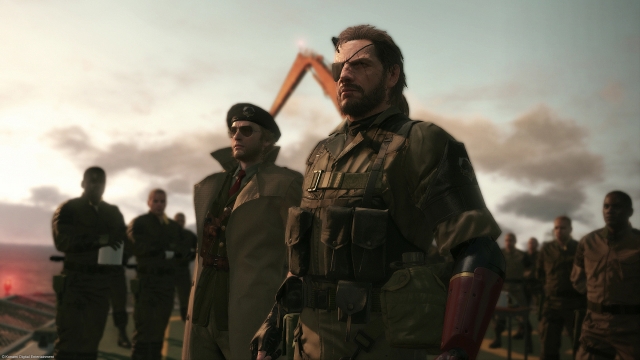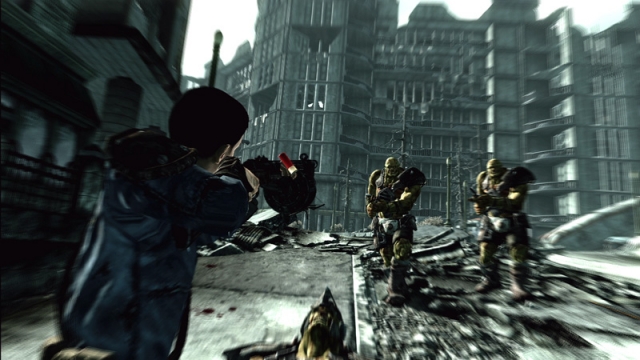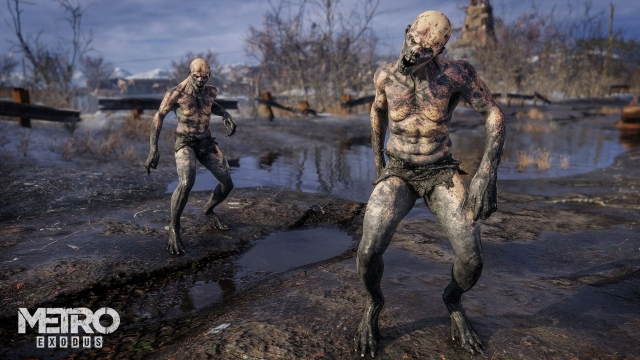
Could the Next BioShock Succeed in Going Open World?
Whispers are darting across the gaming news backchannels of the internet. Hushed voices spread rumours, all of them unconfirmed and yet impossible to ignore. Among these rumours floats a claim that the recently announced BioShock title, being developed by Cloud Chamber, will boast a “rich and dynamic” open world with “systemic” immersive sim elements. It’s a plausible claim: BioShock wouldn’t be the first linear franchise to sprout an open world, and the previous entries certainly made enough of an impression with their world-building efforts to justify a sequel with a brand-new, fully explorable nightmare-city.
Without any gameplay trailers, interviews or anything else in the way of coverage, it’s too early to make any solid judgements one way or the other regarding the next BioShock. Let’s though, for the sake of argument, assume that the game is adopting an open world. How would it make the transition? How SHOULD it make the transition? To answer those questions, it’s worth looking at other franchises that made similar open world leaps.
Metal Gear Solid V: The Phantom Pain

Metal Gear Solid was a strange choice for a shift to open world —not that franchise creator Hideo Kojima ever shied away from strange choices. Up until its fifth mainline entry, the series had been known for keeping the player on a tight leash with frequent cutscenes and plot injections. The gameplay was undoubtedly there —and enjoyed by many— but the main attraction was in the zany plot, over-elaborate cutscenes and general Hollywood-inspired tone. The Phantom Pain, however, changed course entirely. It offered a vast action/stealth sandbox that gave players an unprecedented amount of gameplay variety and freedom. It was truly a marvel to behold, but it just didn’t feel like Metal Gear Solid. Many die-hard series fans were let down by the comparative lack of story and how much of it wasn’t actually seen, but rather heard through in-game audio logs.
So how would BioShock 4 (or whatever it may be titled) fare with a similar open world approach? The original is often credited with popularising audio logs in modern games, so an entire open city with a story largely told in that style wouldn’t cause anywhere near the MGSV levels of fan outcry: it’s absolutely ‘on-brand’ for BioShock and one of the primary methods used by the franchise to keep players immersed. As for the astoundingly dynamic sandbox gameplay, that might rile up BioShock fans in much the same way as Metal Gear Solid’s. There’s definitely potential for gameplay interactivity with the plasmids, but just like with The Phantom Pain, focusing on gameplay systems is likely to detract from world-building, characters, story and themes. A real sandbox-y BioShock 4 could be a great and dynamic shooter, but it would run the risk of losing what makes BioShock special.
Fallout 3

After buying the IP rights from Interplay, Bethesda transformed Fallout from a classic turn-based RPG to a fully-fledged open world, exploration-based shooter in the vein of The Elder Scrolls. The change was a resounding success and saw the franchise achieve new levels of popularity. Of course, existing Fallout fans weren’t shy in expressing their feelings of betrayal at the time: Bethesda had essentially created an Elder Scrolls game and draped it in Fallout’s skin. Nowadays, the Fallout 3 controversy has subsided (Fallout 76 made absolute certain of that) and players are left to enjoy its wonderful crumbling wasteland full of sights, stories and side-quests without needing to think about the tarnished legacy of Fallout and its sequel.
What would the reaction be if BioShock received the same treatment as the original Fallout titles? What if the next Rapture spanned an entire explorable landmass? Obviously the genre change wouldn’t be as drastic as the one seen by the Fallout franchise, so existing fans wouldn’t feel quite so let down. And if done right, the immersion and sense of place would be phenomenal. Wandering from building to building; getting to know a new dystopia by experiencing it freely and organically; and leafing through the audio and text logs of people who might be long dead, or might just be standing behind you with a freshly-sharpened switchblade.
It’s important to think about what would be lost with this style of open world though. When every player experiences different parts of the game at different times, it’s impossible to control the flow of the story. Plot points will have less impact and themes will be watered down when stretched over hours of non-focused wandering. Ultimately, too many of the elements that made earlier BioShock games memorable wouldn’t survive the transition to this style of open world.
Metro Exodus and Batman: Arkham City

Both of these titles tried their hand at building structured, semi-open worlds that would periodically bring players back to the enclosed environments of their predecessors. Metro —funnily enough— actually left the titular metro system and ventured out into wider Russia, while Batman left the asylum in favour of a cordoned-off section of Arkham City. It made sense, both franchises wanted to raise the stakes and have that all-important ‘open world’ back-of-the-box feature; at the same time, the games would have suffered by letting the player wander too aimlessly and lose sight of the main narrative focus. The compromise came in the ‘walled-garden’ approach to open worlds, in which players were free to pursue objectives at their leisure while frequently being reminded of the game’s central plot. There wasn’t much in the way of sandbox-style messing around: every in-game activity had a clear, character-consistent motivation and was contextualised within the plot. Upon retrospect, many players settled on the consensus that linearity suited the franchises better than freedom. Neither game was disliked, but it was widely agreed that the games lost a sense of focus from going open world.
This is the most logical approach BioShock 4 could take to the open world format. BioShock players want to explore the world, experience the story and get lost in the atmosphere; a structured open world would let players explore with more freedom than earlier games without losing sight of the narrative. Sandbox hijinks wouldn’t be possible in this style of game, granted, but players don’t come to BioShock for that. Moreover, this style would best accommodate the —also rumoured— immersive sim elements. Imagine using plasmid powers like augments in Deus Ex, unlocking access to parts of a dystopian city and learning about its history along the way. A BioShock 4 that crafts a not-too-big, structured open world and implements strong immersive sim elements could be a real masterpiece.








COMMENTS
Acelister - 11:04am, 1st February 2020
Going open world wouldn't be as big a (Bio)Shock to the system as the first two, and if they keep the tone of BioShock Infinite, I'm down with whatever.
jadves - 11:12am, 1st February 2020 Author
Agreed. At this point, it'd be a little dissapointing if a new BioShock didn't change anything up.